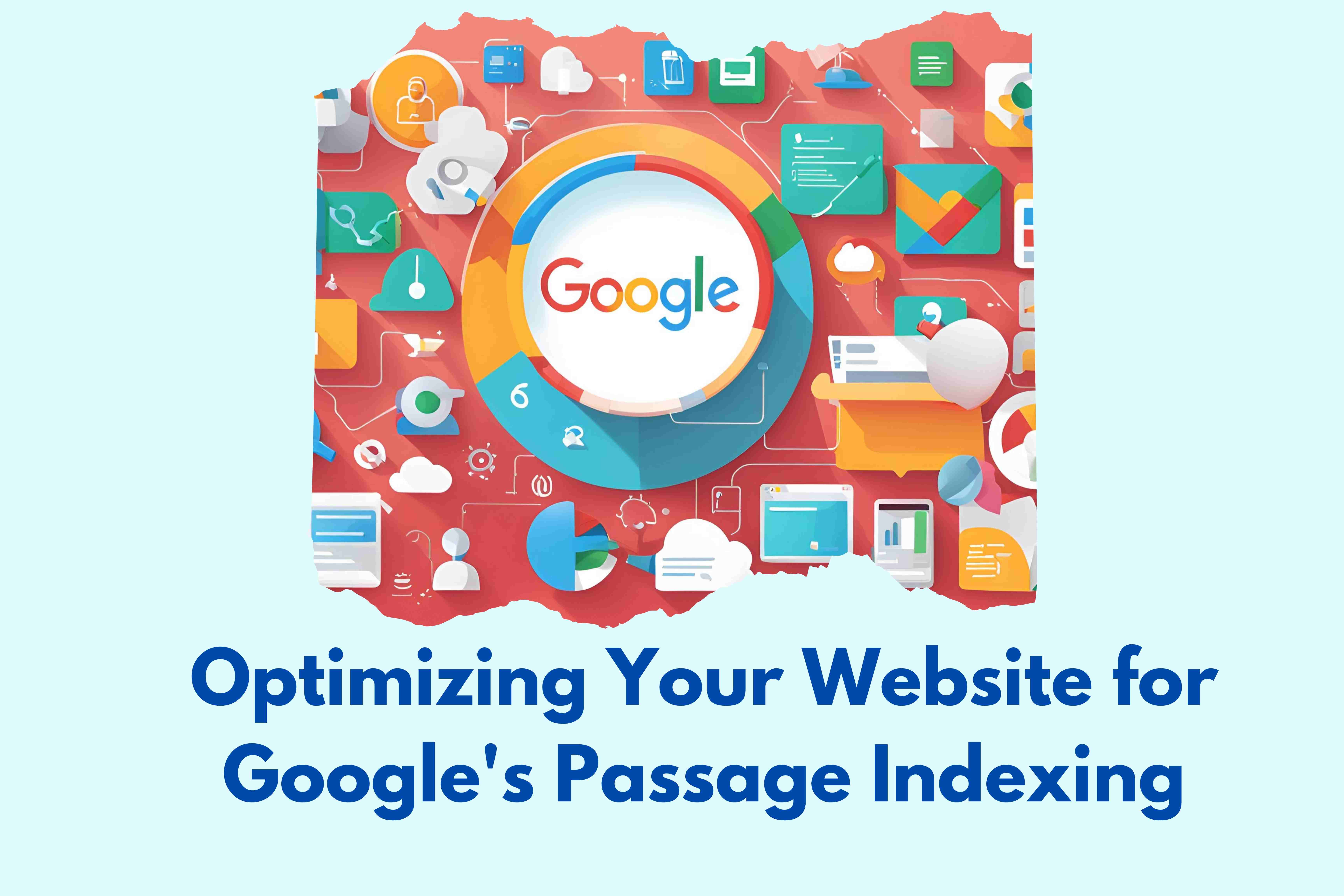Google’s Passage Indexing is one of the most significant updates in search engine optimization (SEO) in recent years. This new system allows Google to rank specific passages of your content, rather than just entire pages, making it easier for users to find relevant information even in long-form articles. For business owners looking to enhance their online store’s visibility and drive more organic traffic, understanding and optimizing for Google’s Passage Indexing is crucial.
In this blog, we’ll cover what Passage Indexing is, how it works, and actionable tips to optimize your website to make the most of this new Google feature.
Table of Contents
- What is Google’s Passage Indexing?
- Why Passage Indexing is Important for SEO
- Actionable Tips to Optimize for Google’s Passage Indexing
- Latest SEO Trends Relevant to Passage Indexing
- Conclusion
- About Don Hesh SEO
What is Google’s Passage Indexing?
Google’s Passage Indexing is a feature introduced in 2020 that allows the search engine to index and rank specific passages from your website content, even if those passages are buried within a longer article. Unlike traditional indexing, where the entire page is ranked based on overall relevance, Passage Indexing allows Google to isolate and surface specific sections of content that answer a search query directly.
For example, if your website contains a lengthy guide on SEO techniques, a specific paragraph explaining “Google’s Passage Indexing” could rank in the search results if it answers a user’s question more effectively than an entire page on the subject.
Why Passage Indexing is Important for SEO
Passage Indexing enhances the relevance of your content by enabling Google to find the most pertinent pieces of information, even in long-form content. This creates new opportunities for your website to rank for a wider variety of search terms. For business owners, it means you no longer need to create multiple short, keyword-stuffed articles for different queries—well-organized, comprehensive content can serve multiple purposes.
Benefits of Passage Indexing:
- Better ranking opportunities: Even long, detailed articles can rank for specific queries without needing separate pages for each topic.
- Improved user experience: Users find more precise answers to their queries, increasing the likelihood of engaging with your content.
- Increased relevance: Content that directly addresses user questions is more likely to rank well and attract organic traffic.
Actionable Tips to Optimize for Google’s Passage Indexing
1. Focus on Structuring Your Content
Google Passage Indexing relies heavily on content structure. The clearer and more organized your content is, the easier it is for Google to isolate passages and rank them individually.
- Break content into logical sections: Use headings (H1, H2, H3) and bullet points to divide your content into digestible segments.
- Use short paragraphs: Keep each paragraph focused on one specific idea or question.
- Internal linking: Ensure each section of your content links to other relevant pages or sections within your website to create a web of useful information.
2. Use Clear and Concise Headings
Your headings should clearly indicate the topics discussed in each section. Google uses these headings to understand the structure of your content and the specific information within it.
- Include keywords in headings: Use relevant keywords naturally in H2 and H3 headings to signal to Google the topics your passages cover.
- Make headings descriptive: Instead of vague headings like “Details,” use more specific phrases like “How Passage Indexing Works.”
3. Optimize for Long-Tail Keywords
Since Passage Indexing can rank individual passages for very specific queries, it’s beneficial to target long-tail keywords. These are more detailed and specific phrases that align closely with user intent.
- Research long-tail keywords: Use tools like Google Keyword Planner or Answer the Public to identify longer, more specific phrases people are searching for in your niche.
- Integrate these keywords naturally: Place long-tail keywords within headings, subheadings, and content sections where appropriate.
4. Answer Specific Questions
Passage Indexing is particularly effective at surfacing content that answers direct questions. Include a question-and-answer format in your content to align with user queries.
- Identify common user questions: Think about the questions your customers frequently ask and ensure your content addresses these queries.
- Use FAQ sections: An FAQ format can help organize questions and answers effectively, making it easy for Google to rank specific passages.
5. Improve Page Load Speed
While Passage Indexing focuses on specific pieces of content, overall page load speed still plays a crucial role in how well your site ranks. Slow pages may deter users and negatively affect your SEO rankings.
- Compress images: Use tools to reduce the size of large images without losing quality.
- Leverage browser caching: Implement caching to reduce the time it takes for returning visitors to load your site.
- Use a content delivery network (CDN): A CDN helps distribute your website across multiple servers, improving load times.
Latest SEO Trends Relevant to Passage Indexing
1. User Intent and Semantic Search
As Google continues to refine its algorithms, user intent and semantic search have become increasingly important. Google no longer matches queries with exact keywords but instead tries to understand the context and intent behind them. With Passage Indexing, ensuring that your content meets the needs of users based on intent will improve your chances of ranking.
- Focus on topics, not just keywords: Create content that thoroughly covers a topic instead of focusing on a single keyword.
- Semantic SEO: Incorporate related terms and concepts that help Google understand the meaning behind your content.
2. Mobile-First Indexing
Google now primarily uses the mobile version of your website for indexing and ranking. With Passage Indexing working alongside this mobile-first approach, it’s essential that your website performs well on mobile devices.
- Ensure mobile responsiveness: Make sure your website is optimized for mobile users, with a design that adapts to different screen sizes.
- Fast mobile load times: Google prioritizes websites that load quickly on mobile devices, so optimize for speed on all platforms.
Conclusion
Optimizing your website for Google’s Passage Indexing can dramatically enhance your chances of ranking for a wide range of search queries. By structuring your content, focusing on long-tail keywords, and answering specific questions, you can maximize the impact of this new SEO development. Staying up to date with the latest trends like user intent and mobile-first indexing is key to making the most of Passage Indexing and driving more organic traffic to your website.
About Don Hesh SEO
Don Hesh SEO is a leading SEO consultant and Google Ads consultant dedicated to helping businesses enhance their online presence and drive organic traffic. Our expertise in AI-driven SEO strategies ensures that your business stays ahead of the competition. Partner with SEO Sydney to leverage the latest AI technologies and achieve your SEO goals efficiently and effectively.



